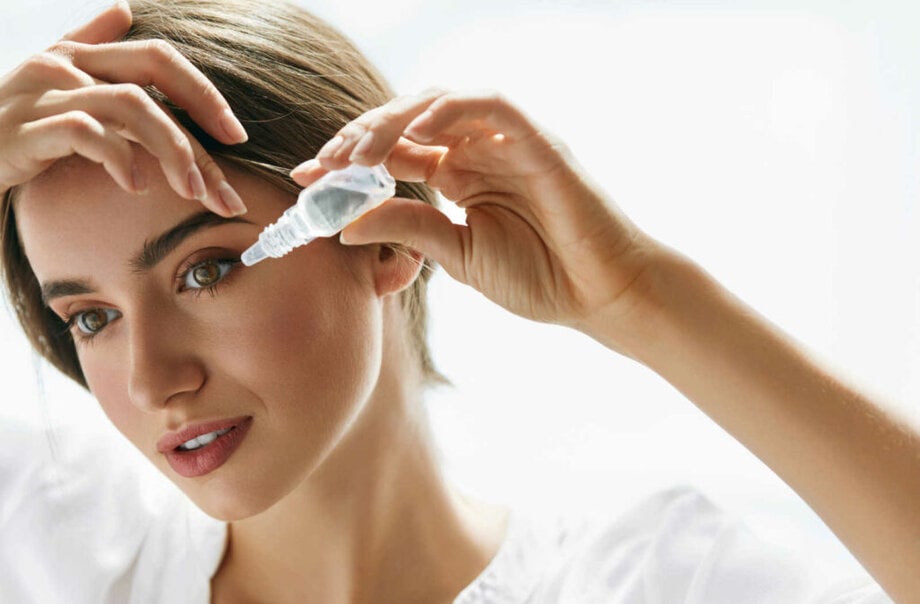How To Use Homeopathy For Eye Conditions And Vision Problems?

Homeopathy is a complementary and alternative medicine system that has been used for centuries to treat various health conditions, including eye conditions and vision problems. This article aims to provide an objective overview of how to use homeopathy for these specific issues.
Homeopathy is based on the principle of ‘like cures like,’ where a substance that causes symptoms in a healthy person can be used in a diluted form to treat similar symptoms in a sick person. Common eye conditions and vision problems, such as dry eyes, conjunctivitis, and cataracts, can be addressed through homeopathic remedies.
Consultation with a qualified homeopath is essential to determine the appropriate remedy and dosage. Additionally, integrating homeopathy with conventional care and making complementary lifestyle changes can enhance the effectiveness of treatment.
It is important to note that safety and side effects of homeopathy should be considered, and further research is needed to establish its evidence in eye care.
Key Takeaways
- Homeopathy is a complementary and alternative medicine system that can be used to treat various eye conditions and vision problems.
- Consultation with a qualified homeopath is essential to determine the appropriate remedy and dosage for individual cases.
- Integrating homeopathy with conventional care and making complementary lifestyle changes can enhance the effectiveness of treatment.
- Safety and side effects of homeopathy should be considered, and further research is needed to establish its evidence in eye care.
Understanding Homeopathy and its Principles
Homeopathy, a holistic healing system based on the principle of ‘like cures like,’ aims to stimulate the body’s vital force and restore balance by using highly diluted substances derived from plants, minerals, or animals.
According to homeopathic principles, a substance that can cause symptoms in a healthy person can be used in a highly diluted form to treat those same symptoms in a sick person. This principle is based on the belief that the body has an innate ability to heal itself.
Homeopathic remedies are prepared by repeatedly diluting the substance in water or alcohol and then vigorously shaking it. This process is believed to release the healing energy or ‘vital force’ of the substance.
Although the scientific evidence supporting the effectiveness of homeopathy is limited, many people still turn to it as an alternative or complementary treatment for various health conditions, including eye conditions and vision problems.
Common Eye Conditions and Vision Problems
Common eye ailments and visual impairments are frequently encountered and can greatly impact an individual’s quality of life.
Some common eye conditions and vision problems include:
- Myopia (nearsightedness): A condition where distant objects appear blurry, while close objects are clear.
- Hyperopia (farsightedness): The opposite of myopia, where nearby objects appear blurry, while distant objects are clear.
- Astigmatism: A condition where the cornea is irregularly shaped, causing blurred vision at all distances.
- Presbyopia: An age-related condition that affects near vision, making it difficult to read small print or see objects up close.
- Cataracts: The clouding of the eye’s natural lens, leading to blurry vision and decreased visual clarity.
Understanding these common eye ailments and vision problems is essential for exploring potential homeopathic treatments that may offer relief and improvement in visual function.
Consultation with a Homeopath
During a consultation with a homeopath, individuals may discuss their eye health concerns and explore potential treatment options. The homeopath will typically start by taking a detailed case history, which includes information about the individual’s eye symptoms, medical history, and lifestyle.
This comprehensive assessment allows the homeopath to understand the unique characteristics of the individual’s eye condition and tailor the treatment accordingly. The homeopath may also conduct a physical examination of the eyes, using specialized tools to assess visual acuity, eye movements, and any structural abnormalities. Additionally, the homeopath may request further diagnostic tests, such as blood tests or imaging studies, to gather more information about the underlying causes of the eye condition.
Based on the gathered information, the homeopath will develop a personalized treatment plan, often including homeopathic remedies, dietary recommendations, and lifestyle modifications. Regular follow-up consultations are typically scheduled to monitor progress and make any necessary adjustments to the treatment plan.
Homeopathic Remedies for Eye Conditions
One approach to addressing concerns related to the well-being of the eyes involves the utilization of alternative treatments, such as the use of homeopathic remedies. Homeopathy is a holistic system of medicine that aims to stimulate the body’s natural healing abilities.
When it comes to eye conditions, homeopathy offers various remedies that may help alleviate symptoms and improve vision. Here are three common homeopathic remedies for eye conditions:
- Euphrasia officinalis: Also known as Eyebright, this remedy is often used for eye conditions accompanied by excessive tearing, burning, or itching.
- Calcarea fluorica: This remedy is commonly used for eye conditions involving weak or strained eye muscles, a feeling of grittiness or sand in the eyes, or cataracts.
- Pulsatilla: This remedy is often recommended for eye conditions accompanied by thick, yellowish discharge, eye redness, or sensitivity to light.
It is important to consult a qualified homeopath to determine the appropriate remedy and dosage for individual eye conditions.
Administering Homeopathic Remedies
The administration of homeopathic remedies involves several key points, including dilution and potentiation, dosage and frequency, and follow-up consultations.
Dilution and potentiation refer to the process of preparing the remedies, where the original substance is diluted and succussed to enhance its therapeutic effects.
Dosage and frequency determine how often and in what quantity the remedy should be taken, depending on the individual’s condition and response.
Follow-up consultations are important to assess the progress of the treatment and make any necessary adjustments to the remedy or dosage.
Dilution and Potentiation
Dilution and potentiation play a crucial role in the homeopathic treatment of eye conditions and vision problems, as they involve the stepwise process of diluting and shaking the original substance to enhance its therapeutic properties. This process is known as succussion.
Here are four key aspects of the dilution and potentiation process:
- Serial Dilution: Homeopathic remedies are typically prepared by serially diluting the original substance in water or alcohol. This repeated dilution is believed to increase the remedy’s potency while minimizing any potential side effects.
- Potentiation: Alongside dilution, potentiation involves vigorous shaking or succussion of the diluted substance. This shaking is thought to transfer the energetic properties of the original substance to the remedy, enhancing its healing potential.
- Dynamization: Dynamization refers to the combination of both dilution and potentiation. It is believed to activate the vital energy or life force of the remedy, making it more effective in treating specific eye conditions.
- Choosing the Right Potency: Homeopathic remedies are available in a range of potencies, from low to high. The selection of the appropriate potency depends on the individual’s symptoms, constitution, and the severity of the eye condition. It is crucial to consult a qualified homeopath to determine the most suitable potency for optimal results.
Dosage and Frequency
Dosage and frequency of administration are important considerations in the application of homeopathic remedies for eye health and visual well-being. The dosage of a homeopathic remedy is determined by the potency and the severity of the condition being treated. Potencies are indicated by numbers followed by ‘X’ or ‘C’, representing dilutions of 1:10 or 1:100 respectively. Generally, lower potencies are used for acute conditions, while higher potencies are preferred for chronic conditions. Frequency of administration depends on the response of the individual to the remedy. In acute cases, frequent repetition of the remedy may be necessary, while chronic cases may require less frequent doses. It is important to consult with a qualified homeopath or healthcare professional to determine the appropriate dosage and frequency for individual cases.
| Potency | Dosage | Frequency |
|---|---|---|
| 6X | 2 pellets | 4 times a day |
| 30C | 3 pellets | 2 times a day |
| 200C | 1 pellet | 1 time a day |
| 1M | 1 pellet | 1 time a week |
| LM1 | 1 pellet | 1 time a month |
Table: Sample dosages and frequencies for different potencies in homeopathic remedies for eye conditions and vision problems.
Follow-up Consultations
Follow-up consultations are an essential component of the treatment process when applying homeopathic remedies for eye health and visual well-being. These consultations allow the homeopath to assess the progress of the treatment and make any necessary adjustments to the prescribed remedies.
Here are four key aspects of follow-up consultations in homeopathy for eye conditions and vision problems:
- Evaluation of symptoms: The homeopath will inquire about any changes or improvements in the symptoms experienced by the patient since the last consultation.
- Assessment of remedy effectiveness: The homeopath will evaluate the effectiveness of the prescribed remedies in addressing the specific eye condition or vision problem.
- Adjustment of dosage and potency: Based on the patient’s response to the remedies, the homeopath may modify the dosage and potency to optimize the treatment outcome.
- Monitoring overall well-being: Follow-up consultations also involve monitoring the patient’s overall well-being and addressing any other health concerns that may impact eye health and visual well-being.
By conducting regular follow-up consultations, homeopathic practitioners can ensure that the treatment remains tailored to the individual’s needs, promoting optimal outcomes for eye health and visual well-being.
Complementary Therapies and Lifestyle Changes
This paragraph introduces a discussion on complementary therapies and lifestyle changes for eye conditions and vision problems.
Eye exercises and relaxation techniques are often recommended as a way to improve eye health and reduce eye strain.
Nutritional support, such as consuming foods rich in vitamins and minerals that promote eye health, is also considered beneficial.
Additionally, proper eye care and hygiene, including regular eye exams and practicing good hygiene habits, are important for maintaining optimal eye health.
Eye Exercises and Relaxation Techniques
Eye exercises and relaxation techniques can be employed to alleviate eye strain and promote visual relaxation. These techniques aim to reduce eye fatigue, improve blood circulation, and enhance overall eye health.
One common exercise is the palming technique, where individuals cover their closed eyes with their palms, creating a dark environment that helps to relax the eyes.
Another technique is the 20-20-20 rule, which involves taking a 20-second break every 20 minutes to look at an object 20 feet away. This helps to relieve eye strain caused by prolonged screen time.
Additionally, eye exercises like eye rolls, focusing on near and distant objects, and blinking exercises can also be beneficial.
These exercises and relaxation techniques, when practiced regularly, can contribute to maintaining healthy eyes and reducing eye-related discomfort.
Nutritional Support
In addition to eye exercises and relaxation techniques, nutritional support can also play a crucial role in maintaining optimal eye health. Proper nutrition can provide the essential vitamins and minerals necessary for healthy vision and help prevent eye conditions. Certain nutrients, such as vitamin C, vitamin E, zinc, and omega-3 fatty acids, have been linked to improved eye health and may reduce the risk of age-related macular degeneration and cataracts. Consuming a balanced diet rich in fruits, vegetables, whole grains, and lean proteins can provide these crucial nutrients. Moreover, certain homeopathic remedies can also be used to support eye health, such as Euphrasia officinalis and Ruta graveolens. It is important to consult with a qualified homeopath to determine the appropriate nutritional and homeopathic support for individual eye conditions.
| Nutrient | Food Sources | Benefits |
|---|---|---|
| Vitamin C | Citrus fruits, strawberries, kiwi | Protects against cataracts |
| Vitamin E | Nuts, seeds, spinach, broccoli | Reduces the risk of macular degeneration |
| Zinc | Meat, shellfish, legumes, nuts | Supports overall eye health |
| Omega-3 fatty acids | Fatty fish, walnuts, flaxseeds | Reduces dry eyes and macular degeneration |
Proper Eye Care and Hygiene
Maintaining proper eye care and hygiene is essential for preserving optimal eye health and preventing potential issues. Good eye care practices involve a combination of regular eye exams, proper eyewear usage, and cleanliness.
Regular eye exams are crucial for detecting any underlying conditions or changes in vision. It is recommended to visit an eye care professional at least once every two years, or more frequently for individuals with preexisting eye conditions or a family history of eye diseases.
Additionally, wearing appropriate eyewear, such as sunglasses with UV protection, can safeguard the eyes from harmful ultraviolet rays and reduce the risk of developing cataracts or macular degeneration.
Lastly, practicing good hygiene by regularly washing hands before touching the eyes, avoiding rubbing the eyes excessively, and removing makeup before bed can prevent the spread of bacteria and reduce the chances of eye infections.
By following these simple practices, individuals can promote optimal eye health and reduce the likelihood of vision problems.
Safety and Side Effects of Homeopathy
The safety and potential side effects of homeopathy for eye conditions and vision problems are important considerations when exploring alternative treatment options. While homeopathy is generally considered safe when administered by trained practitioners, it is essential to be aware of potential risks.
Here are three important points to keep in mind:
- Dilution: Homeopathic remedies are highly diluted substances, which reduces the risk of toxicity. However, the extreme dilution may also lead to a lack of active ingredients and efficacy.
- Individual Sensitivity: Some individuals may be more sensitive to homeopathic remedies, and certain substances used in these remedies can cause allergic reactions or other adverse effects.
- Delay in Seeking Conventional Treatment: Relying solely on homeopathy for serious eye conditions or vision problems could lead to a delay in seeking more effective conventional treatments, potentially worsening the condition.
It is crucial to consult with a qualified healthcare professional before using homeopathy for eye conditions and vision problems to ensure safety and appropriate treatment.
Research and Evidence for Homeopathy in Eye Care
This discussion will explore the research and evidence for the use of homeopathy in eye care, focusing on two key points: clinical studies and observational evidence, as well as patient testimonials and experiences.
Clinical studies and observational evidence provide scientific support for the effectiveness of homeopathy in treating eye conditions and vision problems.
Additionally, patient testimonials and experiences offer valuable insight into the subjective experiences and outcomes of individuals who have used homeopathy for their eye health.
Clinical Studies and Observational Evidence
Clinical studies and observational evidence provide valuable insights into the effectiveness of homeopathy in treating eye conditions and vision problems.
- A study published in the journal ‘BMC Complementary and Alternative Medicine’ found that homeopathic treatment showed significant improvements in visual acuity and reduction in symptoms such as dryness and itching in patients with allergic conjunctivitis.
- Another study published in the journal ‘Homeopathy’ reported that homeopathic remedies were effective in improving visual acuity and reducing symptoms of cataracts in a group of elderly patients.
- Observational evidence from homeopathic clinics also suggests positive outcomes in treating conditions like glaucoma and macular degeneration, although further research is needed to establish the efficacy of homeopathy in these cases.
- It is important to note that these studies and observations have limitations such as small sample sizes and lack of control groups. Therefore, more rigorous research is required to fully understand the potential of homeopathy in eye care.
Patient Testimonials and Experiences
Patient testimonials and experiences play a significant role in understanding the efficacy of homeopathy for eye conditions and vision problems. While clinical studies provide scientific evidence, patient testimonials offer valuable insights into the real-life experiences of individuals who have undergone homeopathic treatment. These testimonials can shed light on the effectiveness and potential benefits of homeopathy in improving eye health and addressing vision issues.
By sharing their personal stories, patients provide anecdotal evidence that can complement the findings of clinical studies. However, it is important to approach patient testimonials with caution, as they may be subjective and influenced by individual perceptions and beliefs. Nevertheless, these firsthand accounts can contribute to the overall understanding of the potential role of homeopathy in managing eye conditions and vision problems.
Integrating Homeopathy with Conventional Care
Integrating homeopathy with conventional care allows for a holistic approach to eye conditions and vision problems, providing patients with a comprehensive treatment plan that addresses both their symptoms and underlying causes. This combination of therapies offers several benefits:
- Personalized treatment: Homeopathy takes into account the individual’s unique symptoms and constitutional profile, tailoring the treatment to their specific needs.
- Minimal side effects: Homeopathic remedies are generally considered safe and do not have the same adverse effects as conventional medications.
- Stimulating self-healing: Homeopathy aims to stimulate the body’s innate healing mechanisms, promoting long-term health rather than just symptom relief.
- Enhanced effectiveness: Combining homeopathy with conventional care may enhance the therapeutic effects of both approaches, leading to improved outcomes.
- Emotional and mental well-being: Homeopathy recognizes the interconnectedness of physical, emotional, and mental health, addressing any imbalances that may contribute to eye conditions or vision problems.
By integrating homeopathy with conventional care, patients can benefit from a comprehensive treatment plan that addresses their eye conditions and vision problems from multiple angles, promoting optimal healing and overall well-being.
Frequently Asked Questions
Can homeopathy cure all types of eye conditions and vision problems?
There is no scientific evidence to support the claim that homeopathy can cure all types of eye conditions and vision problems. Its efficacy is not recognized by mainstream medicine and it is not recommended as a primary treatment option.
How long does it usually take to see results when using homeopathic remedies for eye conditions?
The time it takes to see results when using homeopathic remedies for eye conditions varies depending on the individual and the severity of the condition. It is important to consult a qualified homeopath for a personalized treatment plan.
Are there any specific dietary recommendations to follow while using homeopathy for eye conditions?
While using homeopathy for eye conditions, there are no specific dietary recommendations to follow. However, maintaining a balanced and healthy diet is generally beneficial for overall eye health and may support the effectiveness of homeopathic treatments.
Can homeopathy be used as a preventive measure for eye conditions and vision problems?
Homeopathy may be used as a preventive measure for eye conditions and vision problems. However, further research is needed to determine its effectiveness and specific recommendations for its use in this context.
Are there any age restrictions or limitations for using homeopathy for eye conditions?
There are no specific age restrictions or limitations for using homeopathy to treat eye conditions. However, it is important to consult with a qualified homeopath to ensure the appropriate remedies and doses are used for each individual.








